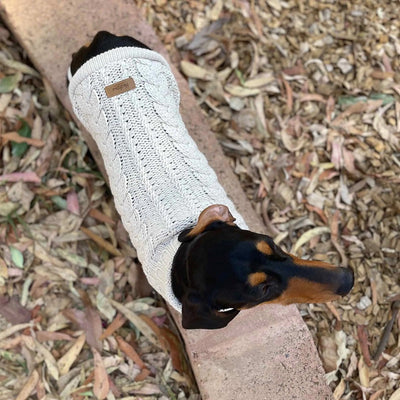What’s not to love a bout dogs? The wagging tail, the fluffy coat, the intestinal worms….. hold on a minute, that’s right I said intestinal worms. Regular interaction with your dog makes it easy to see if it’s got itchy skin or a sore paw but what else is going on that we can’t see? Without the use of preventative treatments, there will be other free loaders hanging out in the intestines of your pet. It is possible that you dog could be harboring up to 5 different types of parasites, in this case intestinal worms in its gut. Worse still, if they are left untreated, some of them can be passed on humans and you can provide a worm hotel in your gut as well.
Although adult dogs can live with worms for many months and in some cases years, these parasites can place stress on the dog’s immune system. In the case of puppies, heavy worm infestations can cause serious health problems.
What types of worms are there?
Worms can be confusing, because there are several different types of worms that occur in different parts of the body (eg intestinal worms in the gut and heart worm in the heart), and some health issues in dogs and cats are referred to as worms when they are actually a fungus of the skin like ring worm. This articles deal specifically with intestinal worms.
Types of intestinal worms
Roundworm
Many puppies are born with roundworm infections which pass via the placenta when the pups are in utero. Pot belly puppies are one of the obvious systems of roundworm infections. Dogs can also become infected if they eat the faeces of other animals (this is called coprophagia).
It is important to note that roundworm is the most common worm that is passed on to humans so always wash your hands after handling the faeces of your pet.
Hookworm
Hookworms are like the vampires of the worm world. As their name suggests, that hook into the wall of the dog’s intestine and feed on the blood and other bodily fluids that are released. This can pose serious threat to the health of puppies as they may become anaemic if they have a heavy load. A common sign of hook worm infection is bloody diarrhoea. They are passed through the faeces of dogs to each other so again, collecting the dog's waste regularly is important.
They can also infect humans through ingestion of the larvae or the larvae can also penetrate the skin, especially the feet.
Whipworm
Whipworm can lay dormant in its egg form for up to 5 years so even if your pet is not exposed at your house, it is possible to ingest these eggs when walking or commonly at places like dog parks. Whip worm is one of the most common causes of diarrhoea in both puppies and in adult dogs.
Tapeworm
You may have seen dog drag its bottom on the ground or ‘scoot’ as it is commonly known. And although there are several potential causes of this behaviour, one of the most common is a tapeworm infection and although they live in small intestine, they cause itchiness around the dog’s bottom.
Tape worms can be quite long and you can sometime see segments of them in the faeces of the dog that look a bit like a grain of rice. There are in fact two different types of tapeworm that can infect dogs. One is known as the flea tapeworm and it is carried in the intestine of fleas and when your dog ingests the flea, the tapeworm is delivered directly to its intestine. The other is called hydatid tapeworm and this is more of a risk for hunting or farm dogs and is passed on when they eat the uncooked offal of animals including feral pigs and kangaroos.
Like several of the other worms, tapeworm can cause health problems for people as well so take when cleaning up your pets waste.
Although some of the worms such as tapeworm segments and roundworm are visible to the naked eye. Rather than wait to see the worms, its best to treat on a regular basis to prevent them from occurring. This is every 3 months for adult dogs - every change of season is an easy way to remember, and in pups, every 2 weeks till 12 weeks and then every month till 6 months.
There are many wormers on the market but look for one that covers all of the intestinal worms including both types of tapeworm.
For further information, call in & see us in the store, or email us: admin@weknowpets.com.au
4/72-76 Station St Bowral NSW 2576
PH: 024862 1175
© weknowpets 2018





